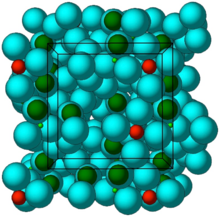AstraZeneca announced that the US Food and Drug Administration (FDA) has approved Lokelma (sodium zirconium cyclosilicate), formerly ZS-9, for the treatment of hyperkalemia in adults.

Hyperkalemia is a serious condition characterized by high levels of potassium in the blood (greater than 5.0 mEq/L). The risk of hyperkalemia increases significantly for patients with chronic kidney disease (CKD) and for those who take common medications for heart failure (HF), such as renin-angiotensin-aldosterone system (RAAS) inhibitors, which can increase potassium in the blood. Currently, patients who experience hyperkalemia while taking guideline recommended RAAS-inhibitor therapy, often have their therapy modified or discontinued.
Sean Bohen, Executive Vice President, Global Medicines Development and Chief Medical Officer at AstraZeneca, said: “We are pleased by today’s FDA approval of Lokelma as it enables us to help address a long-standing clinical need with a new medicine that offers rapid and sustained treatment for adults with hyperkalemia. The consequences of hyperkalemia can be very serious and it’s reassuring for treating physicians that Lokelma has demonstrated lowering of potassium levels in patients with chronic kidney disease, heart failure, diabetes and those taking RAAS inhibitors.”
Lokelma is a highly selective, oral potassium-removing agent. The FDA approval comes on the back of Lokelma receiving authorization from the European Commission (EC) for the treatment of hyperkalemia in adult patients and it is supported by data from three double-blind, placebo-controlled trials and two open-label long-term trials.
Data from one clinical trial showed that for patients receiving Lokelma, the onset of action was at one hour, the median time to achieving normal potassium levels in the blood was 2.2 hours, and 92% of patients achieved normal potassium levels within 48 hours from baseline. Lokelma should not be used as an emergency treatment for life-threatening hyperkalemia. Lokelma was effective in lowering potassium levels in patients with CKD, HF, diabetes and those taking RAAS inhibitors. The most common adverse event was mild to moderate edema at 6% with the recommended dose of 10 g once daily (range of 4 - 16% with 5 -15 g daily).
Steven Fishbane, MD, Professor, Donald and Barbara Zucker School of Medicine at Hofstra Northwell, New York, and lead investigator of the ZS 005 study said, “This FDA approval represents an exciting milestone, as it stands to deliver a rapid, effective and generally well-tolerated treatment option to patients suffering from hyperkalemia in the US.”

No comments:
Post a Comment